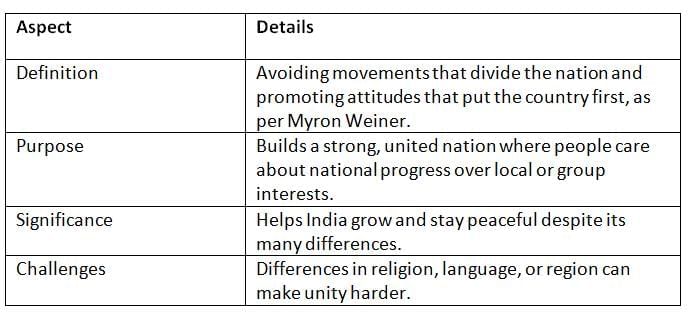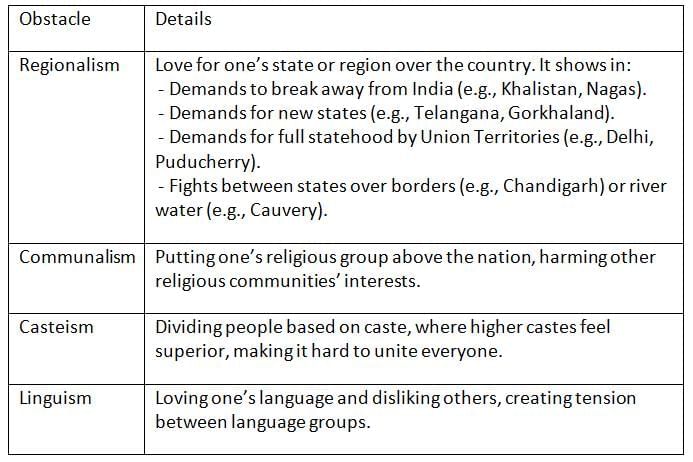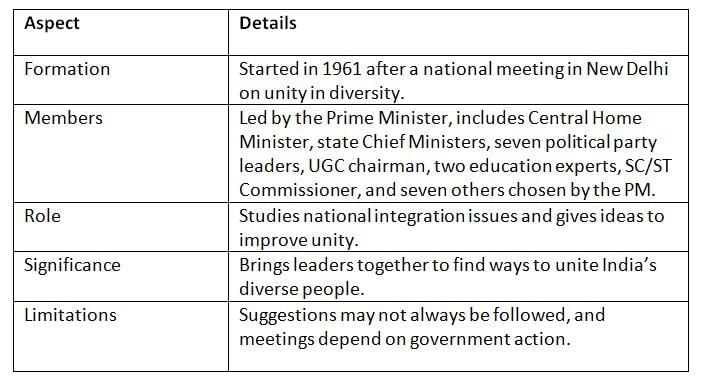Cheat Sheet: National Integration | Indian Polity for UPSC CSE PDF Download
| Table of contents |

|
| Introduction |

|
| Meaning of National Integration |

|
| Obstacles to National Integration |

|
| National Integration Council (NIC) |

|
Introduction
India is a country with many differences, like religion, language, caste, tribe, and region. National integration means bringing people together to work for the country’s growth and unity. This chapter explains what national integration is, the challenges it faces, and the role of the National Integration Council in simple language.
Meaning of National Integration
National integration is about uniting people despite their differences to focus on the country’s well-being instead of small group interests.
Key Points: National integration means putting the nation above small group interests to create a strong, united India.
Obstacles to National Integration
India’s diversity can create challenges that stop people from feeling united as one nation. These problems come from regional, religious, caste, and language differences. Key Points: Regionalism, communalism, casteism, and linguism divide people, making it tough to build a united India.
Key Points: Regionalism, communalism, casteism, and linguism divide people, making it tough to build a united India.
National Integration Council (NIC)
The NIC was set up to promote unity and suggest ways to solve problems that divide the nation.
Key Points: The NIC works to promote unity by studying problems and giving advice, but its success depends on government effort.
Conclusion
National integration is key to India’s growth and peace, uniting people despite differences in religion, language, caste, and region. Challenges like regionalism, communalism, casteism, and linguism make this hard. The National Integration Council helps by suggesting ways to build unity. Understanding these issues shows why working together is important for a strong India.
|
154 videos|993 docs|260 tests
|
FAQs on Cheat Sheet: National Integration - Indian Polity for UPSC CSE
| 1. What is the meaning of national integration? |  |
| 2. What are the main obstacles to national integration? |  |
| 3. What is the role of the National Integration Council (NIC)? |  |
| 4. How can national integration be promoted in a diverse country? |  |
| 5. Why is national integration important for a nation? |  |














